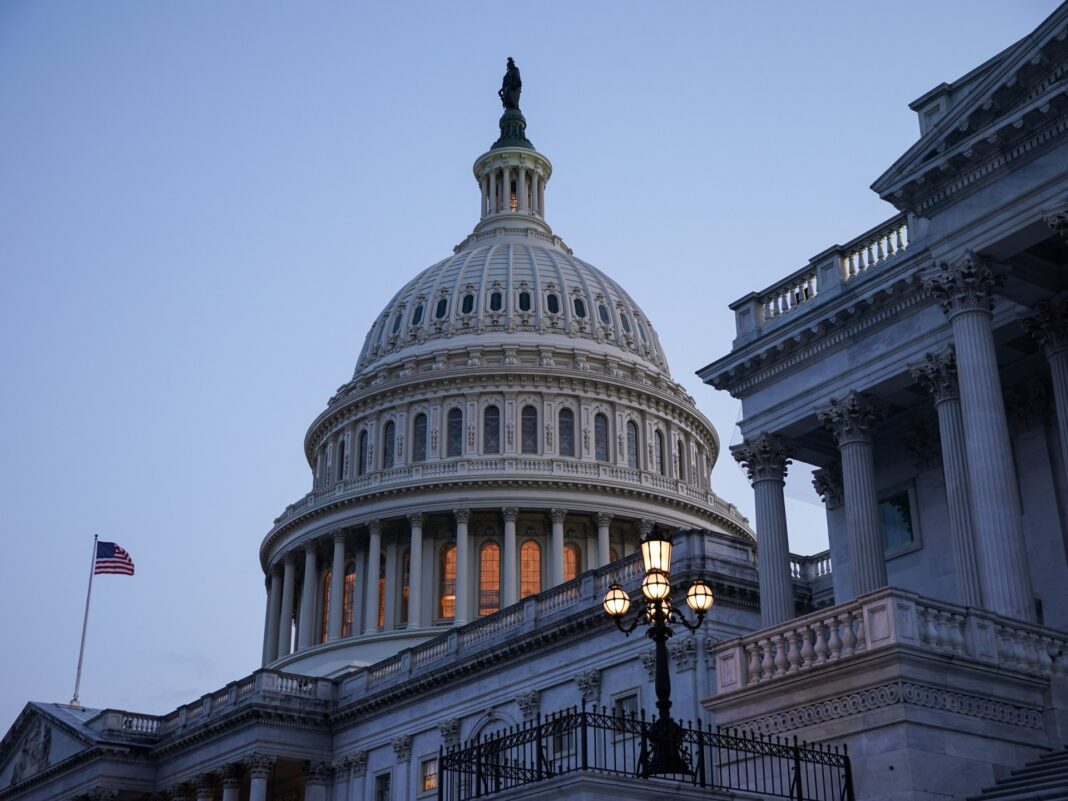Republicans hold a 220-215 majority in House of Representatives but will have to deal with three early vacancies.
Washington, DC – Democrats have won the last race to be called in the United States House of Representatives, leaving their Republican rivals with a razor-thin majority in the chamber after the November 5 elections.
With all the votes counted early on Wednesday, Democrat Adam Gray defeated Republican incumbent John Duarte in California’s 13th Congressional District.
Gray’s victory by fewer than 200 votes came nearly a month after Election Day due to California’s protracted vote-counting process, which allows for corrections on improperly filled mail-in ballots.
The result will give Republicans a slim, five-seat majority in the House — 220 to 215 — when it reconvenes in January, which could prove to be a headache for party leaders as they seek to push through President-elect Donald Trump’s legislative agenda.
The Republicans’ narrow edge in the chamber will shrink further, however, when Republicans Mike Waltz and Elise Stefanik — both tapped to serve in the incoming Trump administration — leave the House.
Former Congressman Matt Gaetz will also vacate his seat in the incoming chamber after he withdrew his nomination for attorney general amid a series of scandals.
Without those three members, a single defection would wipe out the Republican majority, so Trump’s party will need near unanimous consent in the House and almost all members present to pass legislation.
In the US system, bills have to be approved by the House and the Senate and signed by the president to become law.
Republicans won a 53-to-47 majority in the Senate in the November election, giving them “trifecta” control of both houses of Congress and the White House. The new Congress will be sworn in on January 3 and Trump will be inaugurated on January 20.
But the small House majority would in theory allow a small number of legislators to exercise effective veto power over the chamber.
In the outgoing Congress – where Republicans have enjoyed a slightly larger majority – Gaetz led a successful revolt last year with a handful of fellow right-wing lawmakers to force out then-Speaker Kevin McCarthy.
Trump and the current Republican House speaker, Mike Johnson, who is expected to retain his post, can ill-afford Republican rebels in the chamber if they are to push forward with the party’s agenda.
While the president can rely on executive actions to implement policy, major domestic issues require passing legislation and Congress controls the allocation of funds for the federal government.
Meanwhile, the earliest tasks for the incoming Senate will be to confirm Trump administration nominees, including Stefanik, who has been selected to be the next US ambassador to the United Nations.
If Stefanik is confirmed, she would have to quit Congress, and New York Governor Kathy Hochul would be required to call a special election to fill the vacant seat within 90 days.
Last month, Florida Governor Ron DeSantis ordered a special election on April 1 to fill the seats of Waltz — who will serve as Trump’s national security adviser, a post that does not require Senate confirmation — and Gaetz.
All three seats are in strongly Republican districts.


